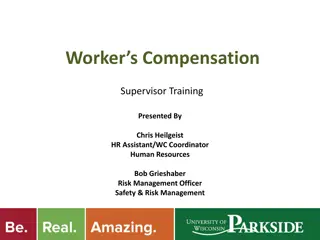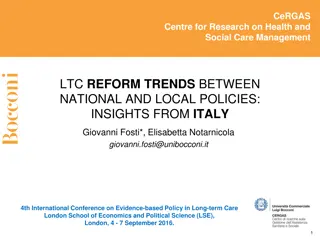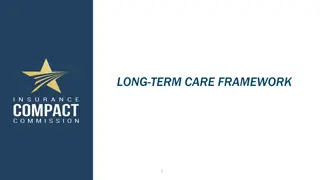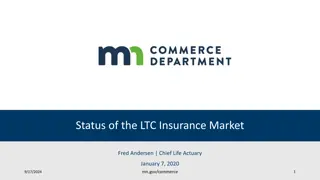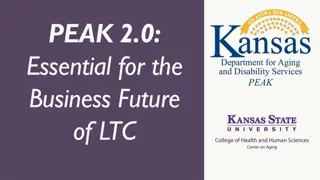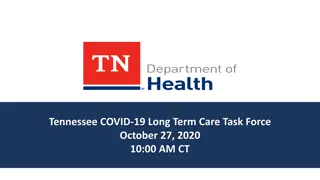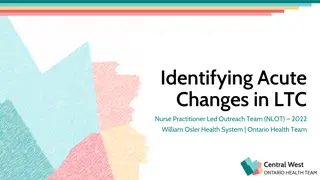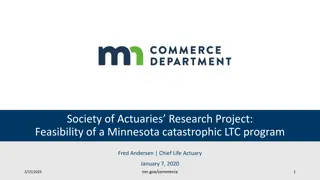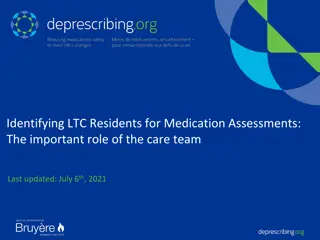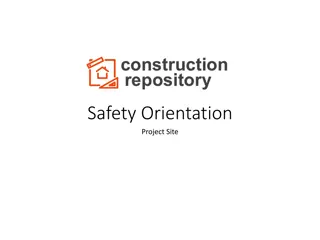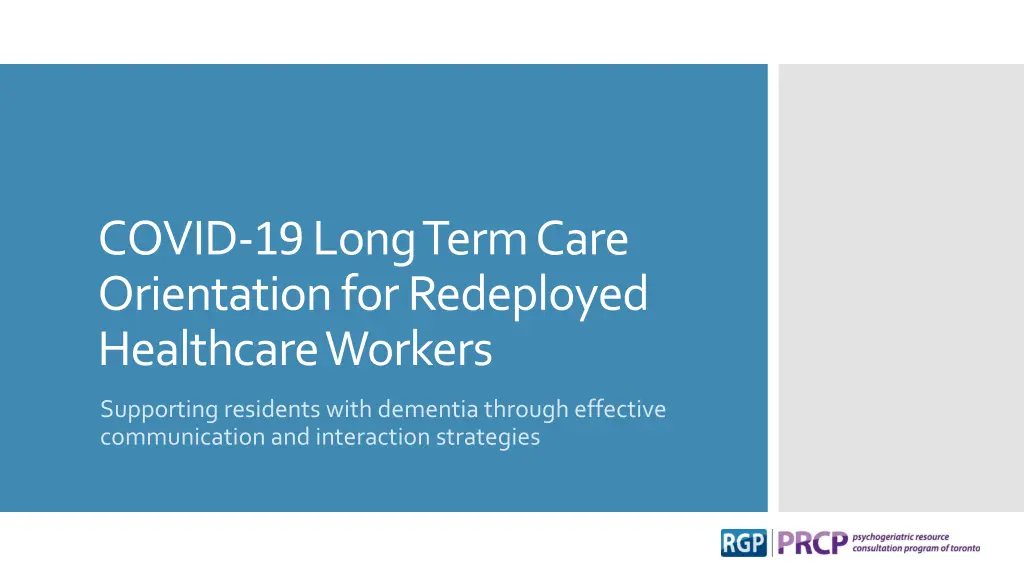
Effective Communication Strategies for Healthcare Workers Supporting Dementia Residents
Enhance your understanding of effective communication and interaction strategies for supporting residents with dementia in long-term care settings. Explore responsive behaviors, cognitive loss, and ways to address unmet needs, all aimed at improving care during the pandemic.
Download Presentation

Please find below an Image/Link to download the presentation.
The content on the website is provided AS IS for your information and personal use only. It may not be sold, licensed, or shared on other websites without obtaining consent from the author. If you encounter any issues during the download, it is possible that the publisher has removed the file from their server.
You are allowed to download the files provided on this website for personal or commercial use, subject to the condition that they are used lawfully. All files are the property of their respective owners.
The content on the website is provided AS IS for your information and personal use only. It may not be sold, licensed, or shared on other websites without obtaining consent from the author.
E N D
Presentation Transcript
COVID-19Long Term Care Orientation for Redeployed Healthcare Workers Supporting residents with dementia through effective communication and interaction strategies
THANK YOU FOR SUPPORTING TEAMS IN LONG TERM CARE IN CARING FOR THE RESIDENTS DURING THE PANDEMIC!
The PRCP would like to acknowledge the contribution of the Toronto Central BSO Coordinating Office, LTC BSOT and TC / C-LHIN BSO Leads in developing this curriculum. 3
Overview of responsive behaviours Goals for today Cognitive loss and interaction Interaction and communication strategies
Slide deck and resources will be shared with you shortly following the training. This webinar will be recorded and posted on the RGP Toronto YouTube channel. Please type your questions related to the content into the chat. There will be opportunity for Q&A at the end of the webinar. Housekeeping
In dementia care behaviours are viewed as responses to unmet needs. A large percentage of those with dementia living in LTC will have some form of responsive behaviour. All behaviour has meaning is a guiding principle to remind us there is a reason for the behaviour. This work can be time consuming and resource intensive however can be quite rewarding when we discover the meaning and address the needs. It is important to reflect on how we interact and communicate with the person and how this could contribute to their response. All behaviour has meaning
ABCs of Brain Function A C Affective (How a person feels) Cognitive (What a person is thinking) B Behaviour (How a person responds) Advanced Gerontological Education Inc., 2019
Loss of Memory Behaviour Response to consider Common response You have to stay in your room because you are sick. I told you this already! There is a virus going around. We don t want you to get sick. It is safe to stay in your room. Person who is COVID-19 positive constantly leaving their room. You asked me that already. I already told you. Don t you remember? Repeatedly asks questions (Eg. When is lunch? ) Respond as though it is the first time you were asked.
Loss of Use of Language Behaviour Response to consider Common response Person is starting to get frustrated because they are saying something but you can t make sense of what they are telling you. Learn what are requests the person typically makes. I don t understand what you are saying. You told me it was okay to help you wash your hands, why are you hitting me? Give the person time to understand and respond. You may need to repeat and use visual cues. Telling them to wash their hands and they say okay but become combative as soon as you begin to help them.
Loss of Recognition / Environmental Perception Behaviour Response to consider Common response Introduce yourself and explain why you are there No! I am your nurse not your daughter. Mistakes you for someone else (Eg. Family member) Use gestures to help support the message and gentle verbal cues. Don t do that. You use that for sanitizing your hands! Wash face with hand sanitizer. Talks to themself in the mirror. Engage resident in friendly conversation as you distract and gently redirect the person. Who are you talking to? There s no one there.
Loss of Insight (Don t know that they don t know) Behaviour Response to consider Common response You told me you like taking a bath and I got the bath ready for you. Resident refusing shower and tells you, I don t need a shower, you need one, go wash yourself! You haven t taken a shower in two weeks. You need to take one and I need to help you. You told me staying healthy is important to you. Wearing this mask when walking helps keep you healthy. Washing your hands too. COVID-19 positive resident refuses to isolate or wear a mask when walking around the unit, spreading the virus. You are sick! Stay in your room!
Body language Consider your stance (Eg. Hands neutral to the side of your body) Facial expression (Eg. Smile even if you are wearing PPE) Eye contact (Cultural considerations) Eye level Don t stand directly in front of the person and approach slowly from the side Consider how fast you are walking towards the person We can enhance communication and interaction
Verbal Short simple sentences Speak slowly and clearly One message at a time and pause between sentences Avoid complicated and/or medical terms Call the person by their name or nickname Start off with a compliment or something positive Consider your tone/volume of voice We can enhance communication and interaction
Other Minimize distractions Pay attention to the person s body language and what they are communicating non-verbally Consider if visual cues are matching what you are communicating/doing Remember this is the person s home, always knock on their door and ask their permission to come into their room We can enhance communication and interaction
Other Recognize and acknowledge how the person is feeling (What they feel is real to them) Ensure the person is wearing their hearing aids (if needed) and that they are working/clean. Ensure the person is wearing their glasses and that they are clean. We can enhance communication and interaction
http://www.rgptoronto.ca/resources/covid-19/ http://www.covidcarelearning.ca http://www.alzheimer.ca/en/Home/We-can-help/Resources/Alzheimers- Society-brochures-and-publications Resources https://www.rgptoronto.ca/webinar/covid-19-ltc-orientation-for- redeployed-healthcare-workers-supporting-clients-with-dementia-and- responsive-behaviours/
Thank you 1. Was this helpful? 2. Are there other topics you would like to see? 18




